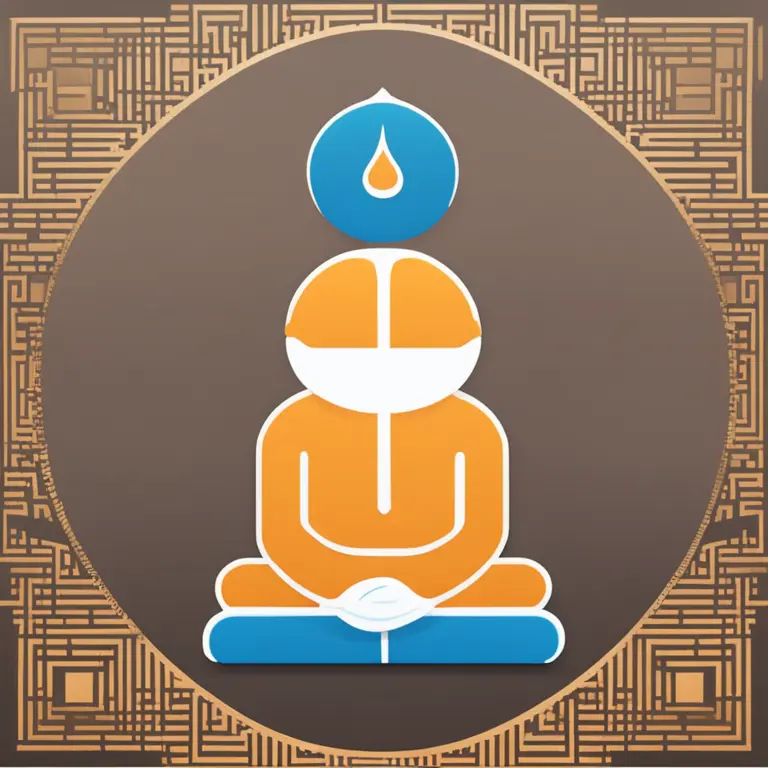
Peaceful Mind: Meditation Techniques for Stress and Anxiety
Discover the power of meditation in managing stress and anxiety with practical techniques and insights for a harmonious life.
article by Hina Kurosawa
An Introduction to Stress Relief through Meditation
Meditation has emerged as a profoundly effective tool for alleviating stress and anxiety in our fast-paced world. The ability to draw one's attention away from the constant barrage of thoughts and external pressures creates a sanctuary of peace within. In this article, we delve into the significance of meditation as a daily practice for mental well-being, exploring techniques accessible to individuals at all levels of experience. As we stand on the cusp of 2024, the imperative to manage mental health is more pronounced than ever. Daily meditation not only offers immediate relief but also cultivates resilience and a balanced perspective toward life's inevitable challenges.

Finding the Right Meditation Technique for You
Meditation is not monolithic; it encompasses various traditions and practices. Some may find solace in mindfulness meditation, focusing on the breath to stay anchored in the present moment. Others might resonate with movement meditations, such as yoga or tai chi, which unite body and mind through fluid activity. Guided visualizations serve as an escape into serene landscapes, providing temporary respite from stressors. Experimenting with different styles is key to discovering what uniquely silences the noise of anxiety for you. The diversity of approaches means there's a meditative practice for everyone ready to embark on this journey toward inner tranquility.

The Importance of Consistent Practice
Consistency is the cornerstone of any successful meditation regimen. Stress and anxiety are not defused by sporadic efforts; they require a sustained counterforce. By carving out a dedicated time each day for meditation, even if it's just a few minutes, we build a habit. This habitual refuge not only interrupts the cycle of stress in real-time but reconfigures our neural pathways over time, making us less reactive to future stressors. The beauty of meditation is in its cumulative effect – the longer you sustain the practice, the deeper the sense of peace and control you can cultivate.

The Role of Breathing in Meditation
Breathwork is often the gateway into meditation. Our breath is a formidable ally in calming the nervous system. Techniques such as diaphragmatic breathing, where one breathes deeply into the belly, can trigger a relaxation response. This counters the fight-or-flight reaction that stress and anxiety invoke. The rhythmic pattern of inhaling and exhaling serves as an intuitive metronome for the mind, guiding it away from worry and toward equilibrium. Mastering the art of breathing can transform the simple act of respiration into a profound tool for managing anxiety.

Creating a Conducive Environment for Meditation
The space in which we meditate can greatly influence our ability to relax. A quiet, comfortable spot, free of distractions, signals to our minds that it's time to unwind. In our hyperconnected era, turning off notifications and dimming lights can further delineate this space as a sanctuary. Some may find that incense, candles, or calming music enhances their practice, although these are optional. The key is personalization; your meditation space should feel like a tangible representation of the inner calm you seek to achieve.
Embracing Meditation in Daily Life
Ultimately, the goal of meditation is to infuse its benefits into our daily existence. The equanimity and awareness nurtured during practice can extend to stressful situations, buffering our reactions and decisions. Mindfulness can be practiced while eating, walking, or engaging in conversation, transforming ordinary activities into exercises in presence and calm. As the line between meditation and daily life blurs, stress and anxiety lose their grip, and what was once a practice becomes a way of being.
Published: 1/14/2024
Modified: 1/15/2024
More predictions
Come back here soon to learn more about yourself and your future


Healing Through Mindfulness: Meditation & Trauma Recovery
Mindfulness meditation offers a powerful tool for individuals seeking solace and healing from traumatic experiences. Discover how this practice can aid in the journey towards inner peace.


Easing Loneliness with Meditation
Discover how mindfulness meditation can provide solace and connection to mitigate feelings of loneliness, enhancing emotional and mental well-being.


Mindfulness Meditation Basics for First Graders
Introducing foundational mindfulness meditation practices to instill calm and focus in first-grade students.